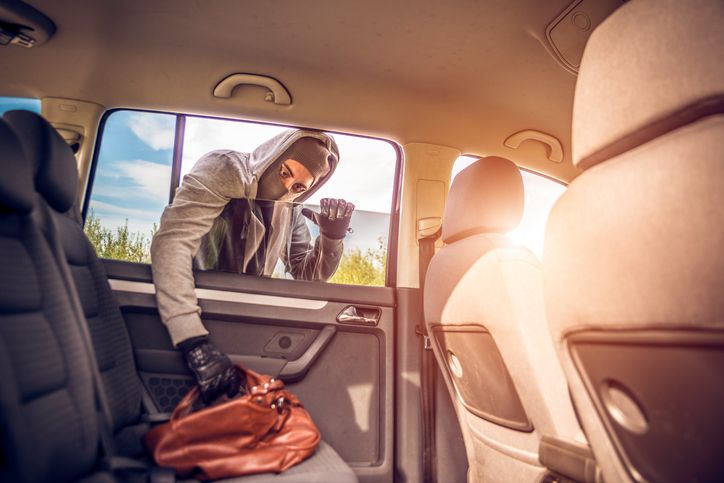A great article on the 5 Most Common Types of Holiday Theft written by Rosalie Donlon, Patricia Harman Nov. 25, 2016 at www.propertycasualty360.com
The holiday season involves occasions for shopping, meals with family and friends, and partying.
For some people, it can also offer an opportunity to steal — gifts, cars, your identity, even Christmas decorations.
According to Nationwide claims data through 2014, there were nearly 15,000 home thefts during the holidays and travel months of November, December and January.
Many of these are crimes of opportunity, and they can be prevented with some simple steps.
Here are five types of theft home and business owners should guard against during the holiday season:
1. Home safety
Christmas trees placed near windows and doors provide would-be thieves with the opportunity to see the gifts that have been placed under the tree. Once all of the packages are wrapped, consider keeping them out of sight until closer to the big day.
Putting inside and outside lights on timers can make it look like someone is home. Always lock doors and windows when leaving the house. Owners who leave a “hidden” key somewhere around the house should consider changing the location or removing it altogether during the holidays.
Fires are also more prevalent around the holidays. Don’t leave candles in a room unattended or near anything flammable, such as curtains or wrapping paper. Ensure that the Christmas tree has plenty of water so it doesn’t dry out. Use the proper lights for inside and outside, and be careful not to overload extension cords or electrical outlets.
When cooking, don’t leave pots unattended on the stove and monitor ovens for flare ups. Keep fire extinguishers close by in case of cooking or other fires.
2. Vehicle safety
Holiday shoppers are often distracted, more focused on their lists and juggling packages than paying attention to their surroundings. They also may be talking to shopping companions, or on the phone, texting or searching the internet.
It’s precisely this kind of scenario that attracts carjackers.
Recently, the U.S. Army Criminal Investigation Command issued a warning about a carjacking scam that targets unsuspecting shoppers.
“What we’ve heard is criminals will place a $100 bill, usually on an individual’s windshield under the wiper blade, and while the victim is distracted and gets out to retrieve the cash, the criminals use the element of surprise to approach the vehicle and rob the victim of their belongings and car,” said Special Agent Mark Kerr of the Army Criminal Investigation Command.
If you discover money, immediately get into your car, lock your doors and drive to a safe location before removing it. You should also notify law enforcement or security personnel in the area.
Smart shoppers approach their cars with their keys in hand, are aware of who is around them, park in well-lit areas, and shop with a friend or other family member. They should also not be distracted by texting or talking on their cellphones so they’re not aware of who may be around them.
Packages left in cars also attract the attention of would-be thieves, so put them in the trunk or place them out of sight in the vehicle. Purses or other valuables should never be left in vehicles.
3. Business safety
Store owners hire a lot of extra help during the holidays, but it’s still important to conduct proper screening and background checks of any prospective employees.
According to the Association of Certified Fraud Examiners’s 2016 “Report to the Nations on Occupational Fraud and Abuse,” organizations lose an estimated 5 percent of their total revenues to fraud each year. The association recommends criminal checks, complete reference checks and even brief ethics checks for all employees. Companies that don’t take proper precautions run the risk of hiring serial fraudsters in the rush to bring on new help. All employees should be trained to watch for fraud or suspicious activity from shoppers and other employees.
Shoplifting also increases during the holidays, and more retailers are installing security devices to combat theft — door alarms that can be triggered by security tags on clothing and other items, tethers for high-value articles and surveillance cameras. Both employees and shoppers should be aware of shoplifters and report any suspicious behavior.
4. In-store safety
Shoppers need to take extra precautions, starting with being aware of their surroundings and who is near them at all times.
Don’t carry a lot of cash, and be sure to wait until asked to produce a credit card so a nearby thief can’t “shoulder surf” to get account information. Also, consider storing credit cards in a radio-frequency identification-blocking wallet or sleeve to protect thieves from cloning any credit cards.
Female shoppers should keep a close eye on their purses and carry them close to their bodies to make it harder for purse-snatchers. Also, consider the kind of purse you’re carrying. Is it open so a would-be thief can easily reach in and grab your wallet? Is it a backpack style that allows anyone standing behind you to reach in without your knowledge?
Social media has made it easier for everyone to share aspects of their lives they wouldn’t have dreamed of sharing a few years ago. Don’t advertise shopping trips, travel plans, holiday parties or some of the great “deals” you got while shopping online. Turn off the geolocation services on cellphones when not using the mapping feature to make it harder for thieves to track your movements through social media posts or the phone itself.
5. Online safety
When shopping online, use one credit card for purchases and then track the charges either online or on the statement when it arrives.
Make sure to use secure websites and log off when completing any purchases. Shoppers should look for an “s” in website URLs. An address that begins with “https://” means the information is encrypted, making it harder for identity thieves looking to steal credit card numbers, passwords or other online identification.
Travelers advises online shoppers to choose a specific delivery time if the retailer provides the option, and make sure someone is home to accept delivery. If purchasing from a larger retailer, consider having your package delivered to a local store for picking up. Take advantage of delivery alerts so you can be notified when a package arrives at your home. If you’re not available to accept delivery, ask a trusted neighbor to take your package inside for safekeeping.
When possible, ask the delivery company to hold your package at their closest pick-up facility until you can retreive it. You also can ask the shipper to require a signature confirmation of delivery in order to prevent packages being left when no one is home to sign for them. It’s also helpful to provide delivery instructions so packages can be left out of sight from your yard or the road.
Avoid using public Wi-Fi when shopping online because unsecured hotspots can allow hackers to access sensitive information on devices. Also beware of wondering eyes spying on phone screens and trying to steal passwords. Video makes it easy for a thief to replay keystrokes for passwords until finding the right combination of characters.
The holidays provide a lot of distractions and enterprising thieves use those opportunities for their gain. Staying alert and taking some basic precautions can help to keep holiday Grinches at bay.




















